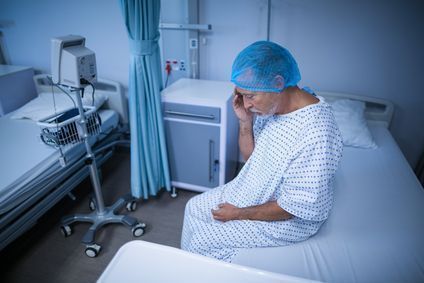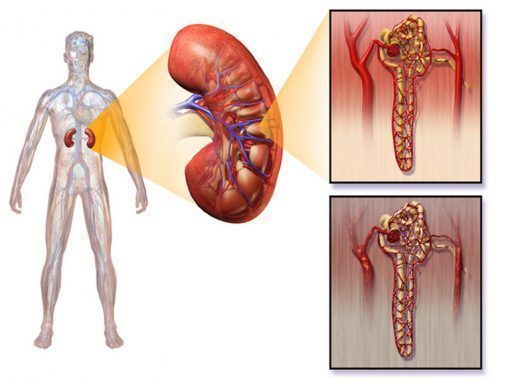
Narrative medicine take care of the patient and not only of the disease
Narrative medicine: take care of the patient and not only of the disease
“In the guidelines that the medical scientific community follows as an address for its clinical choices – Vincenzo Toscano, president of Ame – explains – Endocrinologi Medici Association – There is talk of illness but not of the sick. Narrative medicine tries to see the person and his illness as a whole because both need to be treated: this is why we dedicated the opening of our national congress to narrative medicine, thanks to an unconditional contribution from IBSA Farmaceutici. It is interesting to observe that in 70% of cases, the doctor interrupts the patient’s story about the symptoms and illness after only 18 seconds and it is not surprising that many of the erroneous diagnoses are due to incorrect listening to the patient. Of course, it is no coincidence that today the need for this form of communication is increasingly felt in the face of such limited times that specialists are required to respect for patient visits.
Narrative medicine is a tool that makes the transition from treating to taking care possible and helps the doctor focus on information useful for a correct diagnosis”.
“The figure of the doctor underwent a profound change in the last decades of the last century, – continues Marco Attard, Endocrinology Unit, Cervello Hospital, Palermo – ttechnique and exaggerated technicalities have changed the soul of our profession. Attention has been increasingly directed to laboratory and instrumental tests; the declared objective was that of efficiency and productivity. The work of the doctor was therefore directed to the disease and not to the person.
At the end of the 90s, a critical analysis of the phenomenon led to the rethinking of the figure of the doctor and the birth of Narrative Based Medicine (NBM). Narrative medicine places the patient at the center of the doctor’s work; it is a new opportunity that has its foundations in ancient wisdom: the doctor must remain the first medicine for the patient”.
“The doctor-patient relationship, especially in chronic diseases, is very important, – introduces Cristina Cenci, anthropologist of the Center for Digital Health Humanities – to guarantee a shared decision-making process between the doctor and the patient whose objective is the care of the person at 360°. Narrative medicine integrates evidence-based medicine (EBM) with the patient’s experiences, experiences and expectations to promote a personalized and shared treatment path starting from all the available therapeutic options. The narrative approach is essential to promote therapeutic adherence.
Unfortunately, a hierarchical approach to the treatment path still prevails today. The goal of narrative medicine is to facilitate the transition from adherence to a prescription to adherence to a shared history of care. The new digital technologies, rather than reinforcing depersonalization, can, on the contrary, favor the narrative exchange between doctor and patient, mitigating the hierarchical paradigm”.
“Narrative medicine has 3 meanings, – explains Michela Armigliato, Endocrinology and Rheumatology Unit ULSS 18, Rovigo – as a path of care but also a tool for acquiring awareness and self-care. Narrative medicine is a democratic tool that must be part of the cultural baggage of all personnel involved in the health process: doctors, patients, care givers, health professions, health directors and citizens. Personally, adds the endocrinologist, I hope it will be included in the doctor’s university training programs as it helps to develop reflection skills, special communication skills and the empathy necessary to start a healing relationship through active listening to the patient”.
“An extension of narrative medicine is expressive medicine, – comments Simonetta Marucci, endocrinologist, Service for Eating Disorders, USL Umbria 1, Todi – in which the patient’s narration becomes art, through painting, music, photography, poetry, etc., In an attempt to know the patient better and help him reconstruct his personality. For years, in the center of eating disorders where I work, I manage a Haiku poetry laboratory, short poetry (17 syllables in three verses) of Japanese origin who, through a metaphor with nature, helps patients to get out of solitude, facilitating the expression of feelings and the sharing of one’s own experience. The book “Haiku in eating disorders” was taken from this experience, and.
Yes, the proceeds of which helps patients’ associations I trust you and sunflower“.
“Communicating with patients in the most convincing way and at the same time shelter from Burnout is very important, – Renato Giordano, doctor and director explains. Already Carlo Goldoni – who before dedicating himself to the theater practiced the medical profession, said “The two books I meditated on the most to learn about medicine were THE THEATER and the WORLD”, while the French director Jean Luis Barrault said “THEATER is the first medicine that man invented to protect himself from disease”.
“Narrative medicine, – concludes Alessandro Cecchi Paone, who was entrusted with conducting the session – understood as a collection of clinical cases of more or less famous doctors, it constitutes a non-secondary part of the history of literature of all times, whether it favors the scientific component of sharing significant professional experiences, or whether it has assumed an autonomous literary dignity, true and own. On the other hand, the repertoire of patients’ stories of illnesses is very scarce. A serious deficiency, because the point of view and the experience of those who ask for assistance and treatment are essential to better guarantee the alliance between doctor and patient, and to make adherence to the therapeutic process more effective.
And not just for psychological, emotional and motivational reasons. This is why I find the process of attention focused on a form of communication, perhaps mediated by digital tools, which integrates the limited time available for the outpatient interpersonal relationship more than positive”.

